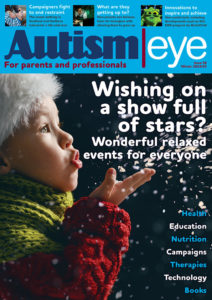Younger siblings have a significantly higher than normal chance of being diagnosed with autism if their older brother or sister has the condition, according to new research.
In a study involving more than 53,000 cases, US-based healthcare provider Kaiser Permanente found that younger siblings were over ten times more likely to gain an ASD diagnosis if they had an older brother or sister with the condition.
 Kaiser Permanente produced previous research claiming that second-born children who were conceived sooner than two years, or later than six years after the arrival of their older sibling have a significantly increased risk of developing ASD.
Kaiser Permanente produced previous research claiming that second-born children who were conceived sooner than two years, or later than six years after the arrival of their older sibling have a significantly increased risk of developing ASD.
Dr Darios Getahun, senior author of the study, has suggested that parents who have an older child on the autism spectrum were already having their younger brothers or sisters tested. This may well have been a factor in driving up diagnosis rates.
Siblings more likely to be tested
He said: “It’s possible that parents who have an older child with an autism diagnosis are more likely to have the younger siblings tested too, resulting in a higher rate of diagnoses among younger siblings, compared with parents who do not have children diagnosed with an autism spectrum disorder.”
Getahun and his team found that children with older brothers or sisters who had an ASD had an 11.3 per cent risk of also developing the condition. This compares to the 0.92 per cent risk registered by children with older siblings who were unaffected by the condition.
The research focused on families in Southern California where at least two siblings were born to the same woman from 2001 to 2010, and at 28 to 48 weeks’ gestation period.
According to the team, gestational periods made no difference. The researchers also found that boys with older brothers were more likely to go on and develop the condition, compared to younger girls with older sisters. This reflects the gender divide in the wider autism community.
Published: 9 August 2016

















